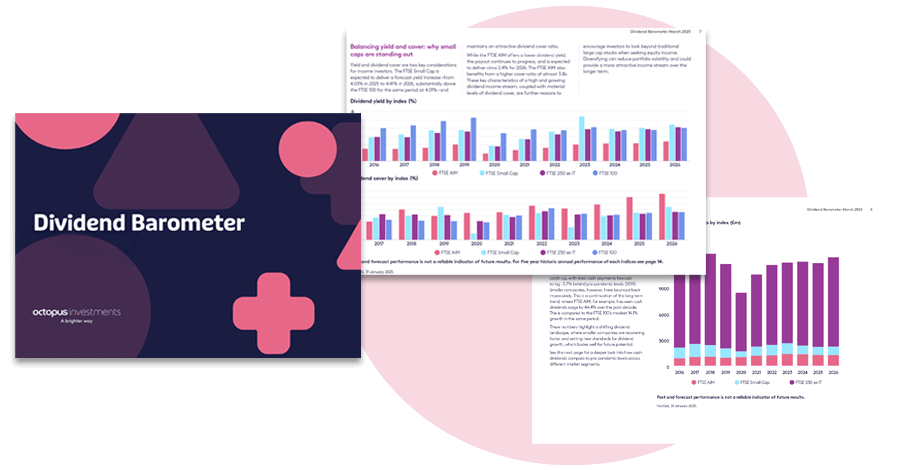Inheritance tax and Business Relief education hub
Regardless of where you are in the process of writing inheritance tax business, you’ll find something helpful here.
We’ve worked with tens of thousands of financial advisers to help develop their knowledge in specialist tax-efficient investments. Through quality education, advisers can help their clients achieve their financial goals through smart planning.
1. Introduction to inheritance tax and Business Relief
These resources provide context around inheritance tax (IHT) rules and exemptions, available allowances, relevant legislation, and potential solutions for clients who have an inheritance tax liability.

Intro to IHT guide
Read this guide for a broad introduction to inheritance tax and estate planning.

Intro to Business Relief
Understand how investors can pass on more wealth to loved ones with a Business Relief-qualifying investment.
2. Which of your clients could benefit from an inheritance tax efficient investment?
Using these resources will help you spot who in your client bank could benefit from a conversation about estate planning and inheritance tax.

Estate planning for clients who want to retain access to capital
Carol is aged 86 with a large estate. She's worried about unexpected care costs and is reluctant to gift.

Estate planning for clients who have a power of attorney in place
Barbara has a power of attorney in place and an estate facing an inheritance tax liability.

Estate planning for clients who’ve sold a business in the last three years
Alan recently sold his business and wants to leave the proceeds to his daughters free of inheritance tax.

Estate planning for clients who want an inheritance tax-efficient ISA
Peter has a large ISA pot that's subject to inheritance tax. He wants to plan for inheritance tax but keep the benefits of the ISA wrapper.

Estate planning for clients who worry it’s too late
Harold worries that in his 90s it's too late to plan for inheritance tax.

Estate planning for clients who want to settle assets into trust
Louise is worried that her child's marriage will end in divorce, and wants control over what will happen to her assets.

Estate planning for clients with a loan trust in place
Tony has a loan trust in place. He's concerned about the inheritance tax on the loan repayments from the trusts.
3. How to talk to clients about inheritance tax investments
It’s one thing identifying clients who need to do estate planning, it’s another having a conversation with them about death. We know this can be a sensitive topic to talk about. That’s why we’ve put together our most popular resources to help get the conversation started.
4. How to choose an inheritance tax investment provider
When recommending an inheritance tax investment to a client, you’ll want to compare the options available in the market.

Choosing an inheritance tax service that invests in unquoted companies
We asked MICAP what to look for when recommending a Business Relief-qualifying investment.
5. Writing the business
To finalise a Business Relief-qualifying investment and get it over the line, use these resources to help you with suitability due diligence and getting the client file right.

A compliance expert’s top tips on inheritance tax investments
Octopus sat down with the Director of Compliance Services at SimplyBiz to discuss recommending inheritance tax-efficient investments.

Webinar: Business Relief cases
Recommend Business Relief with confidence. Tune in for expert tips on soft skills, compliance, suitability and more.

Consumer Duty and tax-efficient investments
With Consumer Duty coming into effect, it’s important that you can evidence how you’re putting the customer at the heart of everything you do.
Risks to bear in mind
Capital at risk
The value of an investment, and any income from it, can fall as well as rise. Investors may not get back the full amount they invest.
Tax relief can’t be guaranteed
Tax relief depends on the companies invested in maintaining their BR-qualifying status. Tax treatment depends on individual circumstances and tax rules could change in the future.
Volatility and liquidity
The shares of AIM-listed and unlisted companies could fall or rise in value more than shares listed on the main market of the London Stock Exchange. They may also be harder to sell.
Assessed case-by-case
HMRC will only conduct a BR assessment after the death of an investor, to confirm whether the companies invested in qualify for BR at that time.
Further technical information
If you’re after some detail around the residence nil rate band (RNRB) or how Business Relief (BR) and discretionary trusts can interact, take a deep dive into our most popular whitepapers.
Residence nil rate brand whitepaper
A technical deep dive into how advisers can help clients make use of the additional IHT allowance.
Business Relief and discretionary trusts whitepaper
A technical deep dive into the ten-year periodic charge for discretionary trusts.
Estate planning and will drafting
Head of Investment Products Jessica Franks explains why will drafting is too important to be an afterthought.
Related inheritance tax resources

The Knowledge Base
Need some support with the technical details of estate planning?
Look no further than The Knowledge Base.

Ask Octopus
Have a technical question about estate planning, or a question about the tax rules relating to a client’s estate?
We’re here to offer advisers support.

Autumn Budget Hub 2025
Everything advisers need to translate Budget changes into meaningful conversations and smarter client outcomes.











